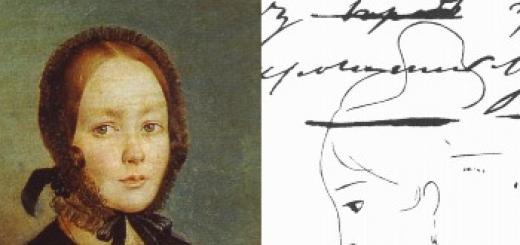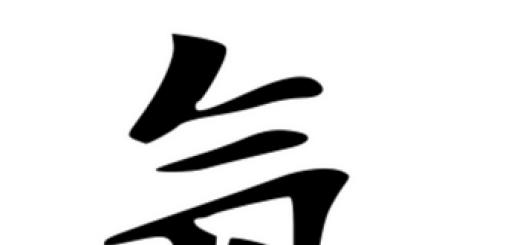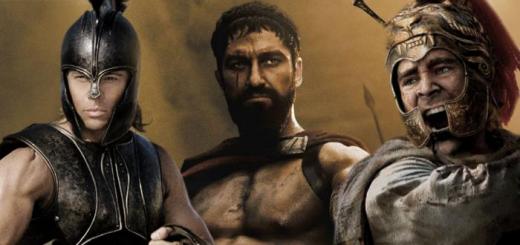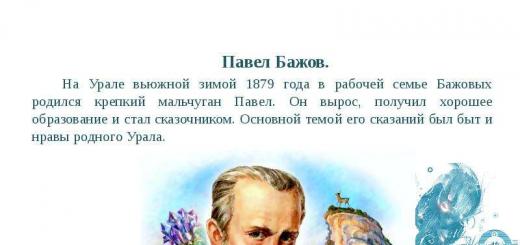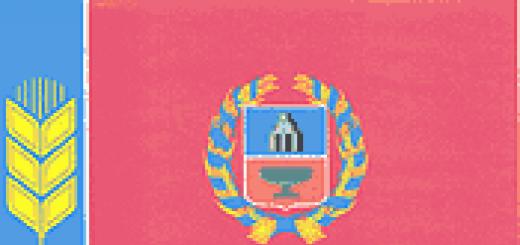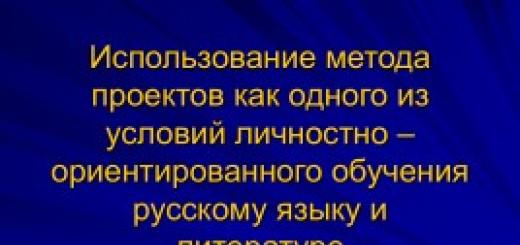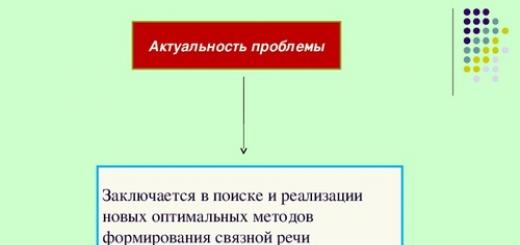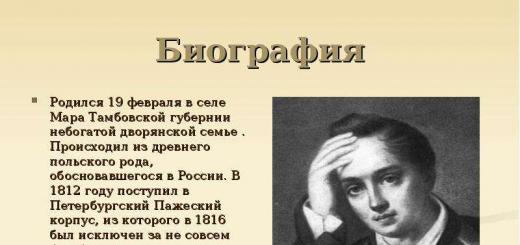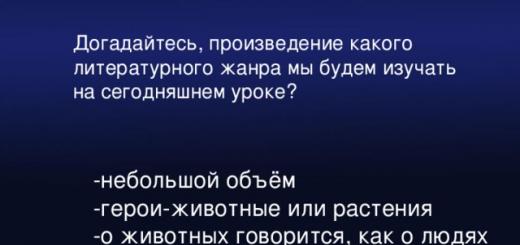Greece and myths- the concept is inseparable. It seems that everything in this country - every plant, river or mountain - has its own fabulous story, passed down from generation to generation. And this is no coincidence, since myths reflect in allegorical form the entire structure of the world and the philosophy of life of the ancient Greeks.
And the name Hellas () itself also has a mythological origin, because The mythical patriarch Hellenes is considered the ancestor of all Hellenes (Greeks). The names of the mountain ranges crossing Greece, the seas washing its shores, the islands scattered in these seas, lakes and rivers are associated with myths. As well as the names of regions, cities and villages. I’ll tell you about some stories that I really want to believe. It should be added that there are so many myths that even for the same toponym there are several versions. Because myths are oral creations, and they have come down to us already written down by ancient writers and historians, the most famous of whom is Homer. I'll start with the name Balkan Peninsula, on which Greece is located. The current "Balkan" is of Turkish origin, meaning simply "mountain range". But earlier the peninsula was named after Amos, the son of the god Boreas and the nymph Orifinas. The sister and at the same time the wife of Emos was called Rodopi. Their love was so strong that they addressed each other by the names of the supreme gods, Zeus and Hera. For their insolence they were punished by being turned into mountains.
History of the origin of the toponym Peloponnese, peninsulas on peninsulas, no less cruel. According to legend, the ruler of this part of Greece was Pelops, the son of Tantalus, who in his youth was offered by his bloodthirsty father as a dinner to the gods. But the gods did not eat his body, and, having resurrected the young man, left him on Olympus. And Tantalus was doomed to eternal (tantalum) torment. Further, Pelops himself either descends to live among the people, or is forced to flee, but subsequently becomes the king of Olympia, Arcadia and the entire peninsula, which was named in his honor. By the way, his descendant was the famous Homeric king Agamemnon, the leader of the troops that besieged Troy.
One of the most beautiful islands in Greece Kerkyra(or Corfu) has a romantic history of the origin of its name: Poseidon, the god of the seas, fell in love with the young beauty Corcyra, daughter of Asopus and the nymph Metope, kidnapped her and hid her on a hitherto unknown island, which he named after her. Corkyra eventually turned into Kerkyra. Another story about lovers remains in the myths about the island Rhodes. This name was borne by the daughter of Poseidon and Amphitrite (or Aphrodite), who was the beloved of the Sun god Helios. It was on this island, freshly born from the foam, that the nymph Rhodes united in marriage with her beloved.
origin of name Aegean Sea Many people know it thanks to the good Soviet cartoon. The story is this: Theseus, the son of the Athenian king Aegeus, went to Crete to fight the monster there - the Minotaur. In case of victory, he promised his father to raise white sails on his ship, and in case of defeat, black ones. With the help of the Cretan princess, he defeated the Minotaur and went home, forgetting to change the sails. Seeing his son's mourning ship in the distance, Aegeus, out of grief, threw himself off a cliff into the sea, which was named after him.
Ionian Sea bears the name of the princess and at the same time priestess Io, who was seduced by the supreme god Zeus. However, his wife Hera decided to take revenge on the girl by turning her into a white cow and then killing her at the hands of the giant Argos. With the help of the god Hermes, Io managed to escape. She found refuge and human form in Egypt, for which she had to swim across the sea, which is called the Ionian.
Myths of Ancient Greece They also tell about the origin of the universe, the relationship to the divine and human passions. They are of interest to us, primarily because they give us an understanding of how European culture was formed.
“Myths about the gods and their struggle with giants and titans are set out mainly based on Hesiod’s poem “Theogony” (Origin of the Gods). Some legends are also borrowed from Homer’s poems “Iliad” and “Odyssey” and the poem of the Roman poet Ovid “Metamorphoses” (Transformations) .
In the beginning there was only eternal, boundless, dark Chaos. It contained the source of life in the world. Everything arose from boundless Chaos - the whole world and the immortal gods. The goddess Earth, Gaia, also came from Chaos. It spreads wide, powerful, giving life to everything that lives and grows on it. Far under the Earth, as far as the vast, bright sky is far from us, in immeasurable depths, the gloomy Tartarus was born - a terrible abyss full of eternal darkness. From Chaos, the source of life, was born a powerful force that animates everything, Love - Eros. The world began to be created. Boundless Chaos gave birth to the Eternal Darkness - Erebus and the dark Night - Nyukta. And from Night and Darkness came the eternal Light - Ether and the joyful bright Day - Hemera. The light spread throughout the world, and night and day began to replace each other..."
Nikolay Kun
Legends and myths of Ancient Greece
Part one. Gods and heroes
Myths about the gods and their struggle with giants and titans are presented mainly based on Hesiod’s poem “Theogony” (The Origin of the Gods). Some legends are also borrowed from Homer’s poems “Iliad” and “Odyssey” and the poem “Metamorphoses” (Transformations) by the Roman poet Ovid.
In the beginning there was only eternal, boundless, dark Chaos. It contained the source of life in the world. Everything arose from boundless Chaos - the whole world and the immortal gods. The goddess Earth, Gaia, also came from Chaos. It spreads wide, powerful, giving life to everything that lives and grows on it. Far under the Earth, as far as the vast, bright sky is far from us, in immeasurable depths, the gloomy Tartarus was born - a terrible abyss full of eternal darkness. From Chaos, the source of life, was born a powerful force that animates everything, Love - Eros. The world began to be created. Boundless Chaos gave birth to the Eternal Darkness - Erebus and the dark Night - Nyukta. And from Night and Darkness came the eternal Light - Ether and the joyful bright Day - Hemera. The light spread throughout the world, and night and day began to replace each other.
The mighty, fertile Earth gave birth to the boundless blue Sky - Uranus, and the Sky spread over the Earth. The high Mountains born of the Earth rose proudly towards him, and the ever-noisy Sea spread widely.
Mother Earth gave birth to the Sky, Mountains and Sea, and they have no father.
Uranus - Heaven - reigned in the world. He took the fertile Earth as his wife. Uranus and Gaia had six sons and six daughters - powerful, formidable titans. Their son, the Titan Ocean, flowing around the entire earth like a boundless river, and the goddess Thetis gave birth to all the rivers that roll their waves to the sea, and the sea goddesses - the Oceanids. Titan Hipperion and Theia gave the world children: the Sun - Helios, the Moon - Selene and the ruddy Dawn - pink-fingered Eos (Aurora). From Astraeus and Eos came all the stars that burn in the dark night sky, and all the winds: the stormy northern wind Boreas, the eastern Eurus, the humid southern Notus and the gentle western wind Zephyr, carrying clouds heavy with rain.
In addition to the titans, the mighty Earth gave birth to three giants - cyclops with one eye in the forehead - and three huge, like mountains, fifty-headed giants - hundred-armed (hecatoncheires), so named because each of them had a hundred hands. Nothing can resist their terrible power; their elemental power knows no bounds.
Uranus hated his giant children; he imprisoned them in deep darkness in the bowels of the Earth goddess and did not allow them to come into the light. Their mother Earth suffered. She was oppressed by this terrible burden contained in her depths. She summoned her children, the Titans, and convinced them to rebel against their father Uranus, but they were afraid to raise their hands against their father. Only the youngest of them, the treacherous Kron, overthrew his father by cunning and took away his power.
As punishment for Kron, the Goddess Night gave birth to a whole host of terrible substances: Tanata - death, Eris - discord, Apata - deception, Ker - destruction, Hypnos - a dream with a swarm of dark, heavy visions, Nemesis who knows no mercy - revenge for crimes - and many others. Horror, strife, deception, struggle and misfortune brought these gods into the world where Cronus reigned on the throne of his father.
Gods
The picture of the life of the gods on Olympus is given from the works of Homer - the Iliad and the Odyssey, which glorify the tribal aristocracy and the basileus leading it as the best people, standing much higher than the rest of the population. The gods of Olympus differ from aristocrats and basileus only in that they are immortal, powerful and can work miracles.
Zeus
Birth of Zeus
Kron was not sure that power would remain in his hands forever. He was afraid that his children would rebel against him and would subject him to the same fate to which he doomed his father Uranus. He was afraid of his children. And Kron ordered his wife Rhea to bring him the children that were born and mercilessly swallowed them. Rhea was horrified when she saw the fate of her children. Cronus has already swallowed five: Hestia, Demeter, Hera, Hades (Hades) and Poseidon.
Rhea did not want to lose her last child. On the advice of her parents, Uranus-Heaven and Gaia-Earth, she retired to the island of Crete, and there, in a deep cave, her youngest son Zeus was born. In this cave, Rhea hid her son from her cruel father, and instead of her son she gave him a long stone wrapped in swaddling clothes to swallow. Krohn had no idea that he had been deceived by his wife.
Meanwhile, Zeus grew up in Crete. The nymphs Adrastea and Idea cherished little Zeus; they fed him with the milk of the divine goat Amalthea. The bees brought honey to little Zeus from the slopes of the high mountain Dikta. At the entrance to the cave, the young Kuretes struck their shields with their swords every time little Zeus cried, so that Kronus would not hear him cry and Zeus would not suffer the fate of his brothers and sisters.
Zeus overthrows Cronus. The fight of the Olympian gods with the titans
The beautiful and powerful god Zeus grew up and matured. He rebelled against his father and forced him to bring back into the world the children he had absorbed. One after another, Kron spewed out his children-gods, beautiful and bright, from the mouth. They began to fight with Kron and the Titans for power over the world.
This struggle was terrible and stubborn. The children of Kron established themselves on high Olympus. Some of the titans also took their side, and the first were the titan Ocean and his daughter Styx and their children Zeal, Power and Victory. This struggle was dangerous for the Olympian gods. Their opponents, the Titans, were powerful and formidable. But the Cyclopes came to the aid of Zeus. They forged thunder and lightning for him, Zeus threw them at the titans. The struggle had already lasted ten years, but victory did not lean on either side. Finally, Zeus decided to free the hundred-armed giants Hecatoncheires from the bowels of the earth; he called them to help. Terrible, huge as mountains, they emerged from the bowels of the earth and rushed into battle. They tore entire rocks from the mountains and threw them at the titans. Hundreds of rocks flew towards the titans when they approached Olympus. The earth groaned, a roar filled the air, everything around was shaking. Even Tartarus shuddered from this struggle.
Zeus threw fiery lightning and deafeningly roaring thunder one after another. Fire engulfed the entire earth, the seas boiled, smoke and stench covered everything with a thick veil.
Finally, the mighty titans wavered. Their strength was broken, they were defeated. The Olympians chained them and cast them into gloomy Tartarus, into eternal darkness. At the copper indestructible gates of Tartarus, the hundred-armed hecatoncheires stood guard, and they guard so that the mighty titans do not break free from Tartarus again. The power of the titans in the world has passed.
There is not a single people who would not have their own idea of the universe, the gods who rule life, as well as their struggle for power and influence. The myths of Ancient Greece, a brief summary of which we will consider in our article, are also special in that they pay a lot of attention to people. Powerful heroes have divine origins, but remain human - mortal and vulnerable, in need of help. And nothing human is alien to them.
What is a myth?
Before studying the myths of Ancient Greece (a brief summary - more is not available to us due to the volume of the article), it is worth understanding what a “myth” is. Essentially, this is a story that reflects people's ideas about the world and order in it, as well as the role of man in the Universe. If you believe the ancient authors, then people were active participants, and not just a crowd that expected mercy from the immortal celestials. But first things first.
Another feature of Greek myths is their high level of orderliness and culture. In addition, their character changed depending on the region of the country, since each polis had its own, more revered gods and heroes, from whom, as the Greeks believed, the population descended. Of course, over time the legends changed and acquired a different meaning. But the most important thing about them is the content, which tells about the life of society in the primitive era, not only in Greece. Researchers note that many stories echo the myths of other peoples who lived at that time, which may indicate that they were created in parallel and carry a grain of truth. The myths of Ancient Greece, a brief summary of which we are considering, is an attempt to explain the world around us and convey to our descendants views on morality and relations in society.

What do ancient Greek legends tell about?
We will talk very briefly about the essence of ancient legends, since many ancient myths of Greece have reached us. A summary of them could fill a whole book. For example, Nikolai Kun, a famous researcher of ancient heritage, collected, organized and translated more than two hundred legends. Many of them are presented in the form of cycles. We will try to divide them into several groups. This:
- myths about the origin of the world and the gods;
- stories about titans and the battle of gods with titans;
- myths about the gods who lived on Olympus;
- labors of Hercules;
- stories about people and heroes (Perseus, Theseus, Jason); a cycle about the Trojan War, its causes, course and end, as well as the return of the heroes of the battle home (the main characters of the myths are Paris, Menelaus, Helen, Achilles, Odysseus, Hector, Agamemnon);
- myths about world exploration and colonization (Argonauts).
Myths of Ancient Greece (summary). About Zeus the Thunderer
The Greeks paid a lot of attention to the main god of Olympus. No wonder, because an angry Thunderer could punish with lightning for a disrespectful attitude or send another grief, and even turn away from a person, which was even worse. Zeus was considered the youngest son of the titans Kronos and Rhea - time and the mother goddess. Rhea saved him from being consumed as Kronos swallowed all his children, fearing for his power.
Having matured, he overthrows his tyrant father and brings all his brothers and sisters back to life, and also distributes power between them. He himself was responsible for the wind, clouds, thunder and lightning, storm and hurricane. Zeus could calm the elements or send them, helped the offended and punished those who deserved it. However, he could not control fate.
The love affairs of Zeus are also described in the myths of Ancient Greece, a brief summary of which we are studying. God had a passion for beautiful girls and goddesses and seduced them in every possible way. From them he had many children - gods and goddesses, heroes, kings. Many of them were not loved by Hera, the legitimate wife of the Thunderer, and often persecuted them and harmed them.

Instead of an epilogue
In the pantheon of the ancient Greeks there were many gods responsible for all sectors of their life - agriculture, navigation, trade, war, crafts, the other world. However, there were also creatures, demigods, who patronized science and art, and monitored justice and morality. This means that great attention was paid to these aspects.
Every cultured person should know what the ancient myths of Hellas tell us about, so it’s worth reading them at least briefly. But reading them in their entirety allows you to plunge into an amazing world, full of interesting and unusual things.
Part one. Gods and heroes
Myths about the gods and their struggle with giants and titans are set out mainly based on Hesiod’s poem “Theogony” (The Origin of the Gods). Some legends are also borrowed from Homer’s poems “Iliad” and “Odyssey” and the poem “Metamorphoses” (Transformations) by the Roman poet Ovid.
In the beginning there was only eternal, boundless, dark Chaos. It contained the source of life in the world. Everything arose from boundless Chaos - the whole world and the immortal gods. The goddess Earth, Gaia, also came from Chaos. It spreads wide, powerful, giving life to everything that lives and grows on it. Far under the Earth, as far as the vast, bright sky is far from us, in immeasurable depths, the gloomy Tartarus was born - a terrible abyss full of eternal darkness. From Chaos, the source of life, was born a powerful force that animates everything, Love - Eros. The world began to be created. Boundless Chaos gave birth to the Eternal Darkness - Erebus and the dark Night - Nyukta. And from Night and Darkness came the eternal Light - Ether and the joyful bright Day - Hemera. The light spread throughout the world, and night and day began to replace each other.
The mighty, fertile Earth gave birth to the boundless blue Sky - Uranus, and the Sky spread over the Earth. The high Mountains born of the Earth rose proudly towards him, and the ever-noisy Sea spread widely.
Mother Earth gave birth to the Sky, Mountains and Sea, and they have no father.
Uranus - Heaven - reigned in the world. He took the fertile Earth as his wife. Uranus and Gaia had six sons and six daughters - powerful, formidable titans. Their son, the Titan Ocean, flowing around the entire earth like a boundless river, and the goddess Thetis gave birth to all the rivers that roll their waves to the sea, and the sea goddesses - the Oceanids. Titan Hipperion and Theia gave the world children: the Sun - Helios, the Moon - Selene and the ruddy Dawn - pink-fingered Eos (Aurora). From Astraeus and Eos came all the stars that burn in the dark night sky, and all the winds: the stormy northern wind Boreas, the eastern Eurus, the humid southern Notus and the gentle western wind Zephyr, carrying clouds heavy with rain.
In addition to the titans, the mighty Earth gave birth to three giants - cyclops with one eye in the forehead - and three huge, like mountains, fifty-headed giants - hundred-armed (hecatoncheires), so named because each of them had a hundred hands. Nothing can resist their terrible power; their elemental power knows no bounds.
Uranus hated his giant children; he imprisoned them in deep darkness in the bowels of the Earth goddess and did not allow them to come into the light. Their mother Earth suffered. She was oppressed by this terrible burden contained in her depths. She summoned her children, the Titans, and convinced them to rebel against their father Uranus, but they were afraid to raise their hands against their father. Only the youngest of them, the treacherous Kron, overthrew his father by cunning and took away his power.
As punishment for Kron, the Goddess Night gave birth to a whole host of terrible substances: Tanata - death, Eris - discord, Apata - deception, Ker - destruction, Hypnos - a dream with a swarm of dark, heavy visions, Nemesis who knows no mercy - revenge for crimes - and many others. Horror, strife, deception, struggle and misfortune brought these gods into the world where Cronus reigned on the throne of his father.
Gods
The picture of the life of the gods on Olympus is given from the works of Homer - the Iliad and the Odyssey, which glorify the tribal aristocracy and the basileus leading it as the best people, standing much higher than the rest of the population. The gods of Olympus differ from aristocrats and basileus only in that they are immortal, powerful and can work miracles.
Zeus
Birth of Zeus
Kron was not sure that power would remain in his hands forever. He was afraid that his children would rebel against him and would subject him to the same fate to which he doomed his father Uranus. He was afraid of his children. And Kron ordered his wife Rhea to bring him the children that were born and mercilessly swallowed them. Rhea was horrified when she saw the fate of her children. Cronus has already swallowed five: Hestia, Demeter, Hera, Hades (Hades) and Poseidon.
Rhea did not want to lose her last child. On the advice of her parents, Uranus-Heaven and Gaia-Earth, she retired to the island of Crete, and there, in a deep cave, her youngest son Zeus was born. In this cave, Rhea hid her son from her cruel father, and instead of her son she gave him a long stone wrapped in swaddling clothes to swallow. Krohn had no idea that he had been deceived by his wife.
Meanwhile, Zeus grew up in Crete. The nymphs Adrastea and Idea cherished little Zeus; they fed him with the milk of the divine goat Amalthea. The bees brought honey to little Zeus from the slopes of the high mountain Dikta. At the entrance to the cave, the young Kuretes struck their shields with their swords every time little Zeus cried, so that Kronus would not hear him cry and Zeus would not suffer the fate of his brothers and sisters.
Zeus overthrows Cronus. The fight of the Olympian gods with the titans
The beautiful and powerful god Zeus grew up and matured. He rebelled against his father and forced him to bring back into the world the children he had absorbed. One after another, Kron spewed out his children-gods, beautiful and bright, from the mouth. They began to fight with Kron and the Titans for power over the world.
This struggle was terrible and stubborn. The children of Kron established themselves on high Olympus. Some of the titans also took their side, and the first were the titan Ocean and his daughter Styx and their children Zeal, Power and Victory. This struggle was dangerous for the Olympian gods. Their opponents, the Titans, were powerful and formidable. But the Cyclopes came to the aid of Zeus. They forged thunder and lightning for him, Zeus threw them at the titans. The struggle had already lasted ten years, but victory did not lean on either side. Finally, Zeus decided to free the hundred-armed giants Hecatoncheires from the bowels of the earth; he called them to help. Terrible, huge as mountains, they emerged from the bowels of the earth and rushed into battle. They tore entire rocks from the mountains and threw them at the titans. Hundreds of rocks flew towards the titans when they approached Olympus. The earth groaned, a roar filled the air, everything around was shaking. Even Tartarus shuddered from this struggle.
Zeus threw fiery lightning and deafeningly roaring thunder one after another. Fire engulfed the entire earth, the seas boiled, smoke and stench covered everything with a thick veil.
Finally, the mighty titans wavered. Their strength was broken, they were defeated. The Olympians chained them and cast them into gloomy Tartarus, into eternal darkness. At the copper indestructible gates of Tartarus, the hundred-armed hecatoncheires stood guard, and they guard so that the mighty titans do not break free from Tartarus again. The power of the titans in the world has passed.
The fight between Zeus and Typhon
But the struggle did not end there. Gaia-Earth was angry with the Olympian Zeus for treating her defeated titan children so harshly. She married the gloomy Tartarus and gave birth to the terrible hundred-headed monster Typhon. Huge, with a hundred dragon heads, Typhon rose from the bowels of the earth. He shook the air with a wild howl. The barking of dogs, human voices, the roar of an angry bull, the roar of a lion were heard in this howl. Turbulent flames swirled around Typhon, and the earth shook under his heavy steps. The gods shuddered with horror, but Zeus the Thunderer boldly rushed at him, and the battle broke out. Lightning flashed again in the hands of Zeus, and thunder rumbled. The earth and the firmament were shaken to the core. The earth flared up again with a bright flame, just as during the fight with the titans. The seas were boiling at the mere approach of Typhon. Hundreds of fiery lightning arrows rained down from the thunderer Zeus; it seemed as if their fire was making the very air burn and the dark thunderclouds were burning. Zeus incinerated all of Typhon's hundred heads. Typhon collapsed to the ground; such heat emanated from his body that everything around him melted. Zeus raised Typhon's body and threw it into the gloomy Tartarus, which gave birth to him. But even in Tartarus, Typhon also threatens the gods and all living things. It causes storms and eruptions; he gave birth to Echidna, half-woman, half-snake, the terrible two-headed dog Orph, the hellish dog Kerberus, the Lernaean Hydra and the Chimera; Typhon often shakes the earth.
The Olympian gods defeated their enemies. No one could resist their power anymore. They could now calmly rule the world. The most powerful of them, the thunderer Zeus, took the sky for himself, Poseidon took the sea, and Hades took the underground kingdom of the souls of the dead. The land remained in common possession. Although the sons of Kron divided the power over the world among themselves, the lord of the sky, Zeus, still reigns over them all; he rules people and gods, he knows everything in the world.
Olympus
Zeus reigns high on bright Olympus, surrounded by a host of gods. Here are his wife Hera, and golden-haired Apollo with his sister Artemis, and golden Aphrodite, and the mighty daughter of Zeus Athena, and many other gods. Three beautiful Oras guard the entrance to high Olympus and raise a thick cloud covering the gates when the gods descend to earth or ascend to the bright halls of Zeus. High above Olympus, the blue, bottomless sky stretches wide, and golden light pours from it. There is no rain or snow in the kingdom of Zeus; There is always a bright, joyful summer there. And the clouds swirl below, sometimes covering the distant land. There, on earth, spring and summer are replaced by autumn and winter, joy and fun are replaced by misfortune and grief. True, even the gods know sorrows, but they soon pass, and joy reigns again on Olympus.
The gods feast in their golden palaces, built by the son of Zeus Hephaestus. King Zeus sits on a high golden throne. The courageous, divinely beautiful face of Zeus breathes with greatness and a proudly calm consciousness of power and might. At his throne are the goddess of peace Eirene and the constant companion of Zeus, the winged goddess of victory Nike. Here comes the beautiful, majestic goddess Hera, the wife of Zeus. Zeus honors his wife: all the gods of Olympus surround Hera, the patroness of marriage, with honor. When, shining with her beauty, in a magnificent outfit, the great Hera enters the banquet hall, all the gods stand up and bow before the wife of the thunderer Zeus. And she, proud of her power, goes to the golden throne and sits next to the king of gods and people - Zeus. Near the throne of Hera stands her messenger, the goddess of the rainbow, the light-winged Iris, always ready to quickly fly on rainbow wings to carry out the commands of Hera to the farthest ends of the earth.
The gods are feasting. The daughter of Zeus, young Hebe, and the son of the king of Troy, Ganymede, the favorite of Zeus, who received immortality from him, offer them ambrosia and nectar - the food and drink of the gods. Beautiful harites and muses delight them with singing and dancing. Holding hands, they dance in circles, and the gods admire their light movements and wondrous, eternally youthful beauty. The feast of the Olympians becomes more fun. At these feasts the gods decide all matters; at them they determine the fate of the world and people.
From Olympus, Zeus sends his gifts to people and establishes order and laws on earth. The fate of people is in the hands of Zeus; happiness and unhappiness, good and evil, life and death - everything is in his hands. Two large vessels stand at the gates of Zeus's palace. In one vessel there are gifts of good, in the other - evil. Zeus draws good and evil from them and sends them to people. Woe to the man to whom the Thunderer draws gifts only from a vessel of evil. Woe to those who violate the order established by Zeus on earth and do not comply with his laws. The son of Kron will move his thick eyebrows menacingly, then black clouds will cloud the sky. The great Zeus will be angry, and the hair on his head will rise terribly, his eyes will light up with an unbearable brilliance; he will wave his right hand - thunderclaps will roll across the entire sky, fiery lightning will flash, and high Olympus will shake.
Zeus is not the only one who keeps the laws. At his throne stands the goddess Themis, who preserves the laws. She convenes, at the behest of the Thunderer, meetings of the gods on bright Olympus and people's meetings on earth, ensuring that order and law are not violated. On Olympus is also the daughter of Zeus, the goddess Dike, who oversees justice. Zeus severely punishes unrighteous judges when Dike informs him that they do not comply with the laws given by Zeus. Goddess Dike is the defender of truth and the enemy of deception.
Zeus maintains order and truth in the world and sends happiness and sorrow to people. But although Zeus sends happiness and misfortune to people, the fate of people is still determined by the inexorable goddesses of fate - the moirai, who live on bright Olympus. The fate of Zeus himself is in their hands. Fate rules over mortals and gods. No one can escape the dictates of inexorable fate. There is no such force, such power that could change at least something in what is intended for gods and mortals. You can only humbly bow before fate and submit to it. Some Moirai know the dictates of fate. Moira Clotho spins the life thread of a person, determining his lifespan. The thread will break and life will end. Moira Lachesis takes out, without looking, the lot that falls to a person in life. No one is able to change the fate determined by the moiras, since the third moira, Atropos, puts everything that her sisters have assigned in a person’s life into a long scroll, and what is included in the scroll of fate is inevitable. The great, harsh moiras are inexorable.
There is also a goddess of fate on Olympus - this is the goddess Tyukhe, the goddess of happiness and prosperity. From the cornucopia, the horn of the divine goat Amalthea, whose milk Zeus himself was fed, she will send gifts to people, and happy is the person who meets the goddess of happiness Tyukhe on his life’s path; but how rarely does this happen, and how unhappy is the person from whom the goddess Tyukhe, who has just given him her gifts, turns away!
Thus, surrounded by a host of bright gods, the great king of people and gods, Zeus, reigns on Olympus, protecting order and truth throughout the world.
Poseidon and the deities of the sea
Deep in the depths of the sea stands the wonderful palace of the great brother of the thunderer Zeus, the earth shaker Poseidon. Poseidon rules over the seas, and the waves of the sea are obedient to the slightest movement of his hand, armed with a formidable trident. There, in the depths of the sea, lives with Poseidon and his beautiful wife Amphitrite, the daughter of the prophetic sea elder Nereus, who was kidnapped by the great ruler of the sea depths Poseidon from her father. He once saw how she led a round dance with her Nereid sisters on the shore of the island of Naxos. The god of the sea was captivated by the beautiful Amphitrite and wanted to take her away in his chariot. But Amphitrite took refuge with the titan Atlas, who holds the vault of heaven on his mighty shoulders. For a long time Poseidon could not find the beautiful daughter of Nereus. Finally, a dolphin opened her hiding place to him; For this service, Poseidon placed the dolphin among the celestial constellations. Poseidon stole the beautiful daughter Nereus from Atlas and married her.
Since then, Amphitrite has lived with her husband Poseidon in an underwater palace. Sea waves roar high above the palace. A host of sea deities surround Poseidon, obedient to his will. Among them is Poseidon's son Triton, who with the thunderous sound of his shell trumpet causes menacing storms. Among the deities are Amphitrite’s beautiful sisters, the Nereids. Poseidon rules over the sea. When he rushes across the sea in his chariot drawn by wondrous horses, then the ever-noisy waves part and make way for the ruler Poseidon. Equal in beauty to Zeus himself, he quickly rushes across the boundless sea, and dolphins play around him, fish swim out of the depths of the sea and crowd around his chariot. When Poseidon waves his formidable trident, then sea waves, covered with white crests of foam, rise like mountains, and a fierce storm rages on the sea. Then the sea waves crash noisily against the coastal rocks and shake the earth. But Poseidon extends his trident over the waves, and they calm down. The storm subsides, the sea is calm again, smooth as a mirror, and barely audibly splashes along the shore - blue, boundless.
Many deities surround Zeus's great brother, Poseidon; among them is the prophetic sea elder, Nereus, who knows all the innermost secrets of the future. Nereus is alien to lies and deception; He reveals only the truth to gods and mortals. The advice given by the prophetic elder is wise. Nereus has fifty beautiful daughters. Young Nereids splash merrily in the waves of the sea, sparkling among them with their divine beauty. Holding hands, a line of them swim out of the depths of the sea and dance in a circle on the shore under the gentle splash of the waves of the calm sea quietly rushing onto the shore. The echo of the coastal rocks then repeats the sounds of their gentle singing, like the quiet roar of the sea. The Nereids patronize the sailor and give him a happy voyage.
Among the deities of the sea is the old man Proteus, who, like the sea, changes his image and turns, at will, into various animals and monsters. He is also a prophetic god, you just need to be able to catch him unexpectedly, master him and force him to reveal the secret of the future. Among the companions of the earth shaker Poseidon is the god Glaucus, the patron saint of sailors and fishermen, and he has the gift of divination. Often, emerging from the depths of the sea, he revealed the future and gave wise advice to mortals. The gods of the sea are mighty, their power is great, but the great brother of Zeus, Poseidon, rules over them all.
All seas and all lands flow around the gray Ocean - the titan god, equal to Zeus himself in honor and glory. He lives far on the borders of the world, and the affairs of the earth do not disturb his heart. Three thousand sons - river gods and three thousand daughters - Oceanids, goddesses of streams and springs, near the Ocean. The sons and daughters of the great god Ocean give prosperity and joy to mortals with their ever-rolling life-giving water; they water the whole earth and all living things with it.
The kingdom of dark Hades (Pluto)
Deep underground reigns the inexorable, gloomy brother of Zeus, Hades. His kingdom is full of darkness and horror. The joyful rays of the bright sun never penetrate there. Bottomless abysses lead from the surface of the earth to the sad kingdom of Hades. Dark rivers flow through it. The chilling sacred river Styx flows there, the gods themselves swear by its waters.
Cocytus and Acheron roll their waves there; the souls of the dead resound with their groaning, full of sadness, on their gloomy shores. In the underground kingdom the waters of the Lethe spring flow and give oblivion to all earthly things. Across the gloomy fields of the kingdom of Hades, overgrown with pale asphodel flowers, ethereal light shadows of the dead rush. They complain about their joyless life without light and without desires. Their moans are heard quietly, barely perceptible, like the rustling of withered leaves driven by the autumn wind. There is no return for anyone from this kingdom of sadness. The three-headed hellish dog Kerber, on whose neck snakes move with a menacing hiss, guards the exit. The stern, old Charon, the carrier of the souls of the dead, will not carry a single soul through the gloomy waters of Acheron back to where the sun of life shines brightly. The souls of the dead in the dark kingdom of Hades are doomed to an eternal, joyless existence.
In this kingdom, to which neither the light, nor the joy, nor the sorrows of earthly life reach, Zeus’s brother, Hades, rules. He sits on a golden throne with his wife Persephone. He is served by the inexorable goddesses of vengeance, Erinyes. Formidable, with whips and snakes, they pursue the criminal; they do not give him a minute of peace and torment him with remorse; You can’t hide from them anywhere, they find their prey everywhere. The judges of the kingdom of the dead, Minos and Rhadamanthus, sit at the throne of Hades. Here, at the throne, is the god of death Tanat with a sword in his hands, in a black cloak, with huge black wings. These wings blow with grave cold when Tanat flies to the bed of a dying man to cut off a strand of hair from his head with her sword and tear out his soul. Next to Tanat are the gloomy Kera. On their wings they rush, frantic, across the battlefield. The Kers rejoice as they see the slain heroes fall one after another; With their blood-red lips they fall to the wounds, greedily drink the hot blood of the slain and tear out their souls from the body.
Here, at the throne of Hades, is the beautiful, young god of sleep Hypnos. He silently flies on his wings above the ground with poppy heads in his hands and pours a sleeping pill from the horn. He gently touches people's eyes with his wonderful rod, quietly closes his eyelids and plunges mortals into a sweet sleep. The god Hypnos is powerful, neither mortals, nor gods, nor even the thunderer Zeus himself can resist him: and Hypnos closes his menacing eyes and plunges him into deep sleep.
The gods of dreams also rush about in the dark kingdom of Hades. Among them there are gods who give prophetic and joyful dreams, but there are also gods who give terrible, depressing dreams that frighten and torment people. There are gods of false dreams, they mislead a person and often lead him to death.
The kingdom of the inexorable Hades is full of darkness and horror. There the terrible ghost of Empus with donkey legs wanders in the darkness; it, having lured people into a secluded place in the darkness of the night by cunning, drinks all the blood and devours their still trembling bodies. The monstrous Lamia also wanders there; she sneaks into the bedrooms of happy mothers at night and steals their children to drink their blood. The great goddess Hecate rules over all ghosts and monsters. She has three bodies and three heads. On a moonless night she wanders in deep darkness along the roads and at the graves with all her terrible retinue, surrounded by Stygian dogs
Nikolay Kun
Legends and myths of Ancient Greece
Part one. Gods and heroes
Myths about the gods and their struggle with giants and titans are set out mainly based on Hesiod’s poem “Theogony” (The Origin of the Gods). Some legends are also borrowed from Homer’s poems “Iliad” and “Odyssey” and the poem “Metamorphoses” (Transformations) by the Roman poet Ovid.
In the beginning there was only eternal, boundless, dark Chaos. It contained the source of life in the world. Everything arose from boundless Chaos - the whole world and the immortal gods. The goddess Earth, Gaia, also came from Chaos. It spreads wide, powerful, giving life to everything that lives and grows on it. Far under the Earth, as far as the vast, bright sky is far from us, in immeasurable depths, the gloomy Tartarus was born - a terrible abyss full of eternal darkness. From Chaos, the source of life, was born a powerful force that animates everything, Love - Eros. The world began to be created. Boundless Chaos gave birth to the Eternal Darkness - Erebus and the dark Night - Nyukta. And from Night and Darkness came the eternal Light - Ether and the joyful bright Day - Hemera. The light spread throughout the world, and night and day began to replace each other.
The mighty, fertile Earth gave birth to the boundless blue Sky - Uranus, and the Sky spread over the Earth. The high Mountains born of the Earth rose proudly towards him, and the ever-noisy Sea spread widely.
Mother Earth gave birth to the Sky, Mountains and Sea, and they have no father.
Uranus - Heaven - reigned in the world. He took the fertile Earth as his wife. Uranus and Gaia had six sons and six daughters - powerful, formidable titans. Their son, the Titan Ocean, flowing around the entire earth like a boundless river, and the goddess Thetis gave birth to all the rivers that roll their waves to the sea, and the sea goddesses - the Oceanids. Titan Hipperion and Theia gave the world children: the Sun - Helios, the Moon - Selene and the ruddy Dawn - pink-fingered Eos (Aurora). From Astraeus and Eos came all the stars that burn in the dark night sky, and all the winds: the stormy northern wind Boreas, the eastern Eurus, the humid southern Notus and the gentle western wind Zephyr, carrying clouds heavy with rain.
In addition to the titans, the mighty Earth gave birth to three giants - cyclops with one eye in the forehead - and three huge, like mountains, fifty-headed giants - hundred-armed (hecatoncheires), so named because each of them had a hundred hands. Nothing can resist their terrible power; their elemental power knows no bounds.
Uranus hated his giant children; he imprisoned them in deep darkness in the bowels of the Earth goddess and did not allow them to come into the light. Their mother Earth suffered. She was oppressed by this terrible burden contained in her depths. She summoned her children, the Titans, and convinced them to rebel against their father Uranus, but they were afraid to raise their hands against their father. Only the youngest of them, the treacherous Kron, overthrew his father by cunning and took away his power.
As punishment for Kron, the Goddess Night gave birth to a whole host of terrible substances: Tanata - death, Eris - discord, Apata - deception, Ker - destruction, Hypnos - a dream with a swarm of dark, heavy visions, Nemesis who knows no mercy - revenge for crimes - and many others. Horror, strife, deception, struggle and misfortune brought these gods into the world where Cronus reigned on the throne of his father.
The picture of the life of the gods on Olympus is given from the works of Homer - the Iliad and the Odyssey, which glorify the tribal aristocracy and the basileus leading it as the best people, standing much higher than the rest of the population. The gods of Olympus differ from aristocrats and basileus only in that they are immortal, powerful and can work miracles.
Birth of Zeus
Kron was not sure that power would remain in his hands forever. He was afraid that his children would rebel against him and would subject him to the same fate to which he doomed his father Uranus. He was afraid of his children. And Kron ordered his wife Rhea to bring him the children that were born and mercilessly swallowed them. Rhea was horrified when she saw the fate of her children. Cronus has already swallowed five: Hestia, Demeter, Hera, Hades (Hades) and Poseidon.
Rhea did not want to lose her last child. On the advice of her parents, Uranus-Heaven and Gaia-Earth, she retired to the island of Crete, and there, in a deep cave, her youngest son Zeus was born. In this cave, Rhea hid her son from her cruel father, and instead of her son she gave him a long stone wrapped in swaddling clothes to swallow. Krohn had no idea that he had been deceived by his wife.
Meanwhile, Zeus grew up in Crete. The nymphs Adrastea and Idea cherished little Zeus; they fed him with the milk of the divine goat Amalthea. The bees brought honey to little Zeus from the slopes of the high mountain Dikta. At the entrance to the cave, the young Kuretes struck their shields with their swords every time little Zeus cried, so that Kronus would not hear him cry and Zeus would not suffer the fate of his brothers and sisters.
Zeus overthrows Cronus. The fight of the Olympian gods with the titans
The beautiful and powerful god Zeus grew up and matured. He rebelled against his father and forced him to bring back into the world the children he had absorbed. One after another, Kron spewed out his children-gods, beautiful and bright, from the mouth. They began to fight with Kron and the Titans for power over the world.
This struggle was terrible and stubborn. The children of Kron established themselves on high Olympus. Some of the titans also took their side, and the first were the titan Ocean and his daughter Styx and their children Zeal, Power and Victory. This struggle was dangerous for the Olympian gods. Their opponents, the Titans, were powerful and formidable. But the Cyclopes came to the aid of Zeus. They forged thunder and lightning for him, Zeus threw them at the titans. The struggle had already lasted ten years, but victory did not lean on either side. Finally, Zeus decided to free the hundred-armed giants Hecatoncheires from the bowels of the earth; he called them to help. Terrible, huge as mountains, they emerged from the bowels of the earth and rushed into battle. They tore entire rocks from the mountains and threw them at the titans. Hundreds of rocks flew towards the titans when they approached Olympus. The earth groaned, a roar filled the air, everything around was shaking. Even Tartarus shuddered from this struggle.
Zeus threw fiery lightning and deafeningly roaring thunder one after another. Fire engulfed the entire earth, the seas boiled, smoke and stench covered everything with a thick veil.
Finally, the mighty titans wavered. Their strength was broken, they were defeated. The Olympians chained them and cast them into gloomy Tartarus, into eternal darkness. At the copper indestructible gates of Tartarus, the hundred-armed hecatoncheires stood guard, and they guard so that the mighty titans do not break free from Tartarus again. The power of the titans in the world has passed.
The fight between Zeus and Typhon
But the struggle did not end there. Gaia-Earth was angry with the Olympian Zeus for treating her defeated titan children so harshly. She married the gloomy Tartarus and gave birth to the terrible hundred-headed monster Typhon. Huge, with a hundred dragon heads, Typhon rose from the bowels of the earth. He shook the air with a wild howl. The barking of dogs, human voices, the roar of an angry bull, the roar of a lion were heard in this howl. Turbulent flames swirled around Typhon, and the earth shook under his heavy steps. The gods shuddered with horror, but Zeus the Thunderer boldly rushed at him, and the battle broke out. Lightning flashed again in the hands of Zeus, and thunder rumbled. The earth and the firmament were shaken to the core. The earth flared up again with a bright flame, just as during the fight with the titans. The seas were boiling at the mere approach of Typhon. Hundreds of fiery lightning arrows rained down from the thunderer Zeus; it seemed as if their fire was making the very air burn and the dark thunderclouds were burning. Zeus incinerated all of Typhon's hundred heads. Typhon collapsed to the ground; such heat emanated from his body that everything around him melted. Zeus raised Typhon's body and threw it into the gloomy Tartarus, which gave birth to him. But even in Tartarus, Typhon also threatens the gods and all living things. It causes storms and eruptions; he gave birth to Echidna, half-woman, half-snake, the terrible two-headed dog Orph, the hellish dog Kerberus, the Lernaean Hydra and the Chimera; Typhon often shakes the earth.
The Olympian gods defeated their enemies. No one could resist their power anymore. They could now calmly rule the world. The most powerful of them, the thunderer Zeus, took the sky for himself, Poseidon took the sea, and Hades took the underground kingdom of the souls of the dead. The land remained in common possession. Although the sons of Kron divided the power over the world among themselves, the lord of the sky, Zeus, still reigns over them all; he rules people and gods, he knows everything in the world.
Zeus reigns high on bright Olympus, surrounded by a host of gods. Here are his wife Hera, and golden-haired Apollo with his sister Artemis, and golden Aphrodite, and the mighty daughter of Zeus Athena, and many other gods. Three beautiful Oras guard the entrance to high Olympus and raise a thick cloud covering the gates when the gods descend to earth or ascend to the bright halls of Zeus. High above Olympus, the blue, bottomless sky stretches wide, and golden light pours from it. There is no rain or snow in the kingdom of Zeus; There is always a bright, joyful summer there. And the clouds swirl below, sometimes covering the distant land. There, on earth, spring and summer are replaced by autumn and winter, joy and fun are replaced by misfortune and grief. True, even the gods know sorrows, but they soon pass, and joy reigns again on Olympus.
